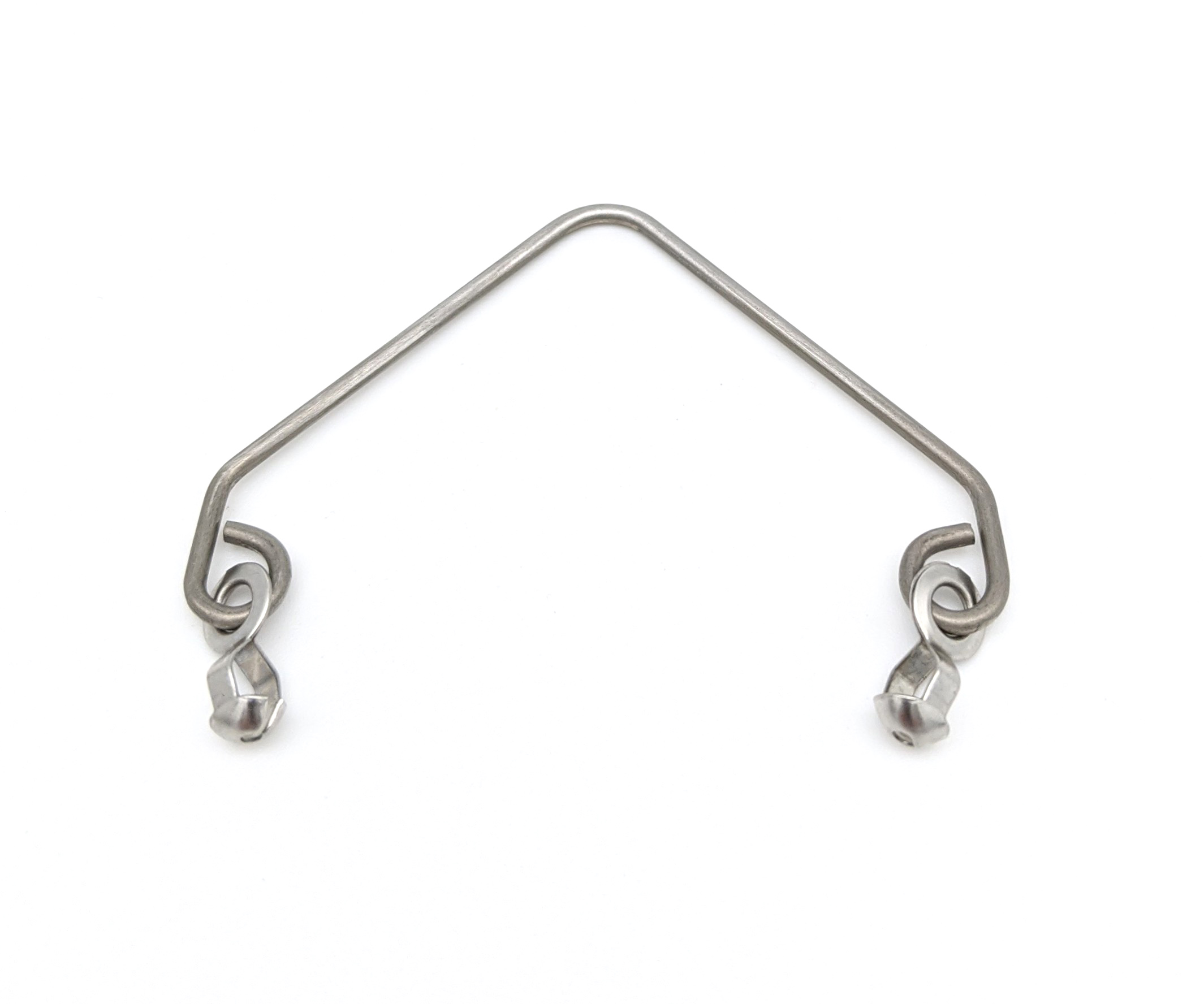Get unique, complex parts easily. No matter your requirements, Chaoyi Spring creates hard-to-produce coil springs and wire forms.
Let us help you create the custom wire form you need, from S-hooks and J-hooks to utility hooks and more.
We work closely with customers across a wide range of industries, helping them design and manufacture made-to-order parts.
Why choose Chaoyi Spring? We prioritize customer-focused collaboration, modern equipment and the latest technology to make your parts per print.
Find the information and guidance you need, from measuring a spring to learning about materials, placing an order and much more.
Imagine a coiled metal spring, seemingly innocent and unremarkable. But within its seemingly simple structure lies a hidden potential, an accumulation of energy silently waiting to be released. This energy,


Imagine a coiled metal spring, seemingly innocent and unremarkable. But within its seemingly simple structure lies a hidden potential, an accumulation of energy silently waiting to be released. This energy, stored through compression, isn't just a fascinating physical phenomenon; it's a fundamental principle that fuels countless machines and technologies, from the everyday marvels of toys to the intricate workings of complex machinery. This article delves into the intriguing world of compressed springs, exploring how they work, the incredible energy they hold, and the diverse applications that make them essential components in our modern world.

At the heart of a compressed spring's energy storage lies a fundamental principle: Hooke's Law. This law, named after the brilliant English scientist Robert Hooke, dictates that the force exerted by a spring is directly proportional to its displacement from its resting position. In other words, the more you compress a spring, the greater the force it will exert when released.
Think of it like a rubber band: the more you stretch it, the more it wants to snap back to its original shape, and the more force it will release when you let go. The key difference with a spring, however, is that it's designed to store and release this force repeatedly, making it a crucial component for numerous mechanical systems.
The energy stored within a compressed spring is called elastic potential energy. It's like a reservoir of power waiting to be tapped into. This energy is directly proportional to the spring's stiffness (its resistance to deformation) and the square of the compression distance. This means that a stiffer spring compressed by the same amount will store more energy, and the energy stored increases dramatically with greater compression.
When you release the spring, this stored energy is converted into kinetic energy, the energy of motion. The spring expands, pushing or pulling on whatever it's attached to, transferring the stored energy and causing movement. It's a seamless conversion of potential energy to kinetic energy, driving countless machines and mechanisms.
Compressed springs are ubiquitous, quietly working behind the scenes in countless applications, from the simple to the complex. Here are just a few examples of how their stored energy powers our world:
Think of the springy action of a ballpoint pen, the smooth operation of a door closer, or the satisfying click of a mechanical pencil. These everyday objects rely on compressed springs to function, showcasing their ability to deliver consistent force and movement.
Beyond these simple examples, compressed springs play a crucial role in countless products we use daily. From the suspension systems of our cars, which absorb bumps and shocks, to the mechanisms inside our watches, which keep time with precision, compressed springs are essential components of our modern lives.
Step into the world of industry and technology, and you'll find compressed springs playing even more vital roles. They power the pistons in engines, helping to convert fuel into motion, and they are integral to the operation of complex machines like presses, cranes, and robots.
Compressed springs are also crucial for safety and protection. They are used in fire extinguishers, providing the force to expel fire-suppressing agents, and they power safety devices like door hinges, ensuring that doors close securely and prevent unwanted entry.
The world of compressed springs is constantly evolving. Innovations in materials science are leading to the development of springs with enhanced properties, allowing them to withstand greater stresses and temperatures. These advancements are expanding their applications, enabling them to tackle even more challenging tasks.
There's also a growing focus on efficiency. Engineers are designing springs that are lighter, more compact, and more durable, reducing energy waste and minimizing environmental impact. This pursuit of efficiency is critical as we strive to create more sustainable technologies.
The compressed spring is a testament to the transformative power of stored energy. From the simple act of bouncing a ball to the complex workings of industrial machinery, these unassuming devices play a vital role in our world. Their ability to convert potential energy into kinetic energy, driving movement and powering countless applications, makes them essential components of our technological advancements. As we continue to innovate and explore the limits of engineering, compressed springs will undoubtedly continue to play a crucial role, silently working behind the scenes to power our future.
The next time you encounter a compressed spring, take a moment to appreciate its hidden potential. This seemingly simple device, with its ability to store and release energy, is a testament to the ingenuity of human invention and a vital component of the complex world we inhabit. From the everyday objects we interact with to the powerful machinery that drives our industries, compressed springs are an integral part of our modern lives, shaping the way we work, play, and navigate the world around us.
Browse some of the custom wire forms and springs that we manufacture. Don’t see what you need? We specialize in made-to-order products that meet your application requirements.
Visit Our GalleryNeed a custom wire form or coil spring? We make it work. Fill out the contact form and a representative will respond within 1 business day. If you have a PDF or CAD file, you can submit to request a quote.